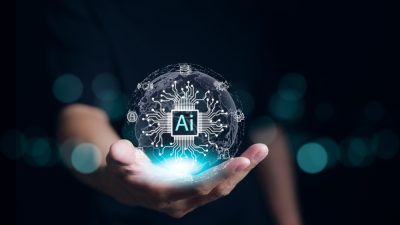Digital economy Artificial intelligence (AI) has an important role to play in the fight against hunger, the mitigation of the climate crisis and the transition “towards smart and sustainable cities”, said the head of the agency United Nations Information and Communication Technologies Specialist, Houlin Zhao, at the World Summit on Artificial Intelligence at the Service of Social Good.
The summit, which is being held in Geneva from May 28 to 31, “is the main platform for dialogue on artificial intelligence,” said Zhao, Secretary-General of the International Telecommunication Union (Tuesday). ITU). Organized by the International Telecommunication Union (ITU) – in partnership with the XPRIZE Foundation, the Association for Computing Machinery (ACM) and 37 United Nations entities – the summit aims to identify the practical applications of artificial intelligence to accelerate the United Nations Sustainable Development Goals. Discussions also focus on complex issues of confidentiality and trust, as well as challenges to be addressed, ranging from job destruction and potential biases in algorithms to self-contained weapons and social manipulation. More than 2,000 participants from more than 120 countries came to this summit to discuss the potential of artificial intelligence in the areas of education, health and well-being, social and economic equality and space research.
UN Secretary-General António Guterres has sent a message praising the “promises” of artificial intelligence while warning against its potential dangers. “If we are to harness the benefits of artificial intelligence and face the risks, we must all work together – governments, business, academia and civil society – to develop frameworks and systems for responsible innovation,” he said. he declares. “These systems must be agile and adaptable, capable of developing rules and standards of self-regulation, alongside legally binding laws and instruments, as appropriate, as in the case of lethal autonomous weapons”. Noting that the United Nations is well positioned as a forum on “the best way to guide progress to better serve humanity,” Mr. Guterres emphasized that this opportunity to work in partnership to exploit these technological advances must be seized. for the common good. For his part, Petteri Taalas, Secretary General of the World Meteorological Organization (WMO), said climate change highlighted the need for adequate information to improve resistance to extreme weather events. “WMO is managing Big Data on a daily basis using a 24/7 operational forecasting system based on a huge amount of data collected from around the world,” he said, identifying the artificial intelligence as a potentially valuable tool for meeting this challenge. The aim of this year’s summit is to generate “artificial intelligence at the service of social good” projects and to ensure that associated technologies are developed in a secure manner, thus providing equal access for all.
Francis Gurry, Director General of the World Intellectual Property Organization (WIPO), said that 340,000 artificial intelligence patent applications had been filed since the 1950s. “Artificial intelligence is one of the most that are transforming our economy and society today, “he said. He acknowledged that artificial intelligence poses pressing economic, social and ethical problems. “We are at an extremely early stage, but the common feature is that the underlying technology activity .. . is happening at a much faster pace than our ability to formulate answers,” he said. What is clear to ITU leader Zhao is that “no nation, no organization, no business and no community can tackle these challenges alone”. “The path to transformative but also safe, reliable and inclusive artificial intelligence will require unprecedented collaboration among governments, industry, academia and civil society,” he concluded.





























































